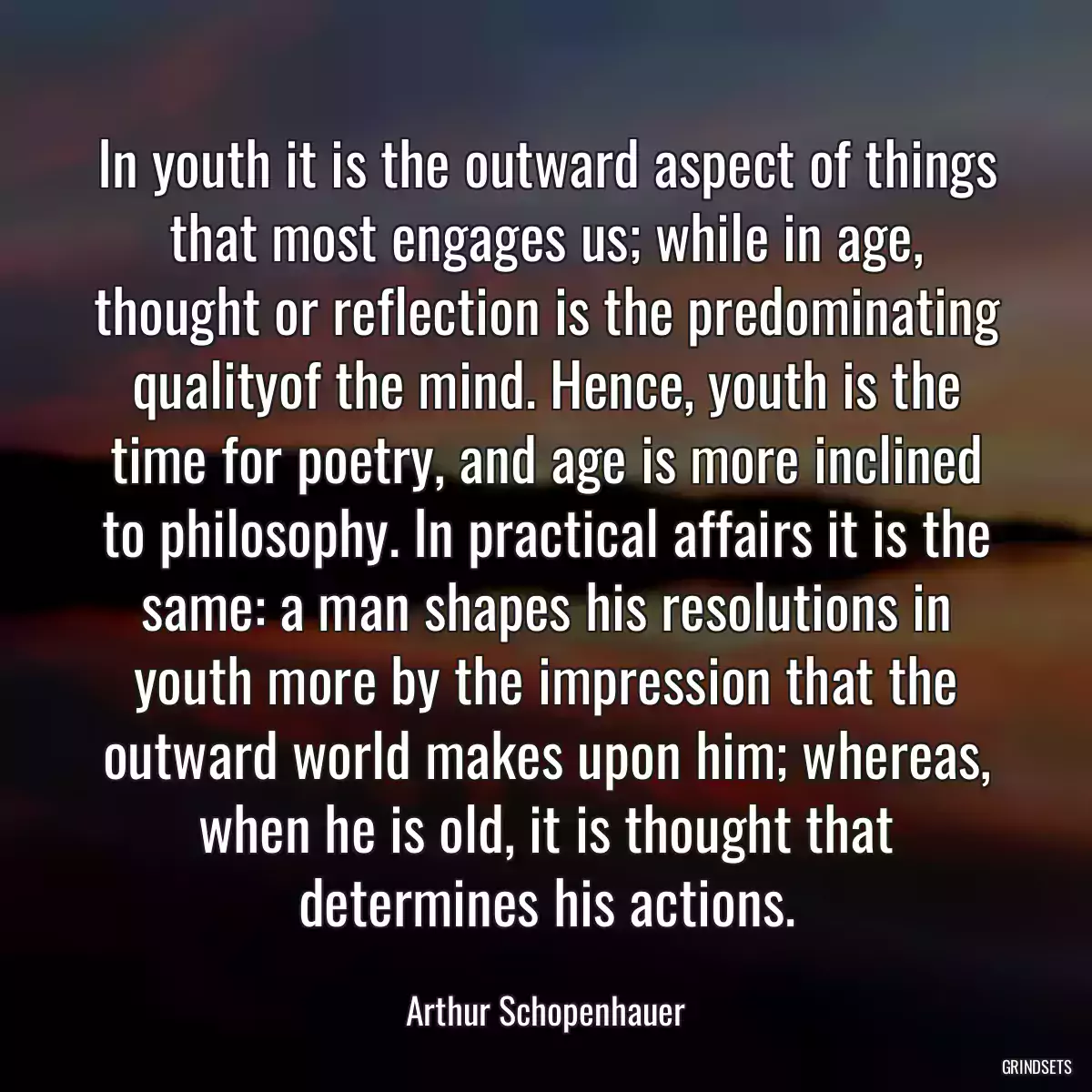
Quotes Arthur Schopenhauer - page 4
Find dozens of Arthur Schopenhauer with images to copy and share.

What give all that is tragic, whatever its form, the characteristic of the sublime, is the first inkling of the knowledge that the world and life can give no satisfaction, and are not worth our investment in them. The tragic spirit consists in this. Accordingly it leads to resignation.
It would be better if there were nothing. Since there is more pain than pleasure on earth, every satisfaction is only transitory, creating new desires and new distresses, and the agony of the devoured animal is always far greater than the pleasure of the devourer
The vanity of existence is revealed in the whole form existence assumes: in the infiniteness of time and space contrasted with the finiteness of the individual in both; in the fleeting present as the sole form in which actuality exists; in the contingency and relativity of all things; in continual becoming without being; in continual desire without satisfaction; in the continual frustration of striving of which life consists. . . Time is that by virtue of which everything becomes nothingness in our hands and loses all real value.
You may also like
That the outer man is a picture of the inner, and the face an expression and revelation of the whole character, is a presumption likely enough in itself, and therefore a safe one to go on; borne out as it is by the fact that people are always anxious to see anyone who has made himself famous. Photography offers the most complete satisfaction of our curiosity.
Every satisfaction he attains lays the seeds of some new desire, so that there is no end to the wishes of each individual will.
Every state of welfare, every feeling of satisfaction, is negative in its character; that is to say, it consists in freedom from pain, which is the positive element of existence.
Every new born being indeed comes fresh and blithe into the new existence, and enjoys it as a free gift: but there is, and can be, nothing freely given. It's fresh existence is paid for by the old age and death of a worn out existence which has perished, but which contained the indestructible seed out of which the new existence has arisen: they are one being.
Talent works for money and fame; the motive which moves genius to productivity is, on the other hand, less easy to determine.

A man of talent will strive for money and reputation; but the spring that moves genius to the production of its works is not as easy to name
For it is a matter of daily observation that people take the greatest pleasure in that which satisfies their vanity; and vanity cannot be satisfied without comparison with others.
A man can surely do what he wills to do, but cannot determine what he wills.
You are free to do what you want, but you are not free to want what you want.
All our wanting comes from needs, thus we continiously suffer. The intellect teaches free will, free from suffering.
It is only when a man is alone that he is really free.
He who does not enjoy solitude will not love freedom.
Journalists are like dogs, when ever anything moves they begin to bark.
You may also like

In youth it is the outward aspect of things that most engages us; while in age, thought or reflection is the predominating qualityof the mind. Hence, youth is the time for poetry, and age is more inclined to philosophy. In practical affairs it is the same: a man shapes his resolutions in youth more by the impression that the outward world makes upon him; whereas, when he is old, it is thought that determines his actions.
Freedom of the press is to the machinery of the state what the safety valve is to the steam engine.